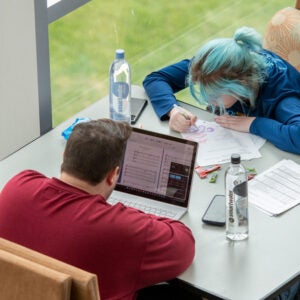
Do you remember what it was like to be a student? Are you putting yourself in situations where you are a learner nowadays? Do you fulfill your own cover letter promise of staying a life-long learner? In a recent advice piece for The Chronicle of Higher Education, Rachel Trousdale challenges educators to continue to be a newbie at something. That means leaning into learning struggles, experiencing the rollercoaster of success, failures, and stagnation, and dealing with the setbacks that are part of it.
Now, you might ask why you should put yourself through such trouble. Aside from the personal satisfaction that comes with learning something new, Trousdale argues that educators can improve their teaching skills by experiencing being a learner and stretching their current abilities. As our own experiences as students move further into the past with every year, we increasingly lose touch with our learner self and lose connection to our students in that sense. If we can relate to students’ learning experiences in some way we might increase our patience, ability to be reflective, become more empathetic, and develop new teaching methods.
What exactly you chose to learn is up to you, but it is important to pick something that is not building on your existing strength. Perhaps you can consider learning an athletic or culinary skill, a language, an art form, or a craft such as woodwork. Trousdale recently picked up sewing as a new hobby. In her article, she reflects: ”No matter how much I remind myself, as a teacher, that my students are still learning how to learn, that message sinks in far more effectively when I am trying to acquire a difficult new skill myself. That experience — with its attendant frustrations, satisfying successes, and embarrassing failures — reminds me of things I need to do, and do better, in the classroom”.
Now, what is something that will stretch your ability, knowledge, or skill set? How can it help you as a teacher? How do you support your students as newbies to your class? We would love to hear from you! Email us at ctl@boisestate.edu.
Read the whole advice piece.